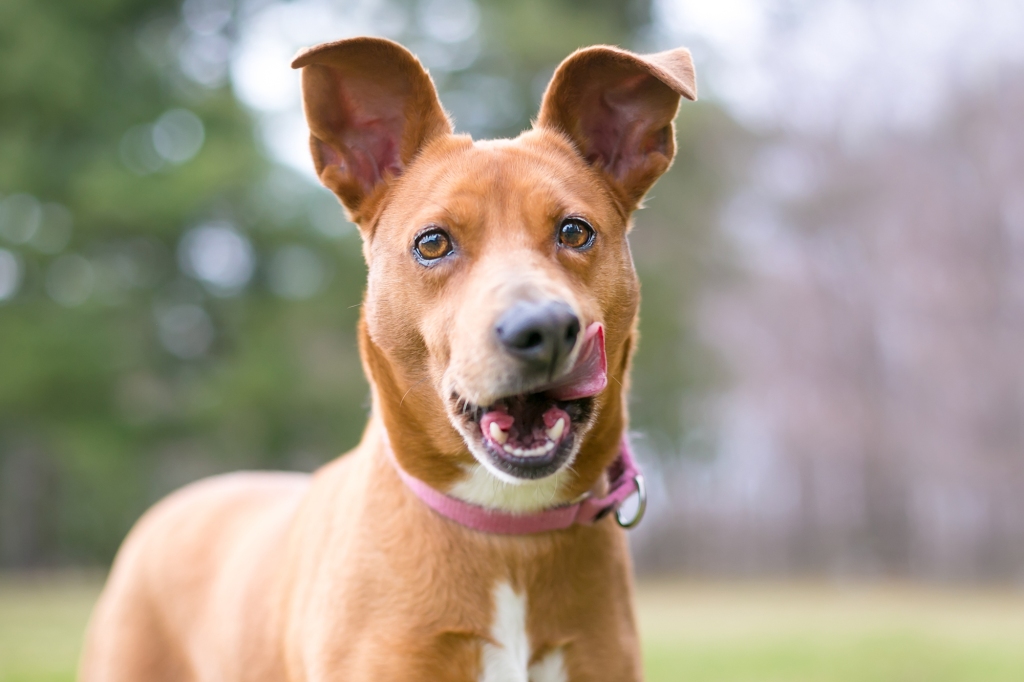
Man’s best friend understands us more than we realize, while we comprehend Fido less than we think.
“Dogs, we’re their whole life,” dog trainer Andrea Arden told The Post. “[They’re] very well equipped to learn a lot about who we are and what we want from them.”
They can even understand what we’re saying — to some extent.
A 2020 study by Eötvös Loránd University in Hungary demonstrated that while dogs don’t pick up the detail in human speech, they can, in fact, comprehend their owners’ words at a very basic level.
“If some owners are thinking that it doesn’t matter what I say to my dog because the dog is watching the gestures I do or finding out from context what he or she should do, it’s not entirely true. They do listen to human speech,” researcher Dr. Lilla Magyari told the American Kennel Club.

A 2021 study conducted at Dalhousie University in Canada found that the average canine knows 89 words or phrases that they can respond to. Researchers also concluded that smarter pooches respond to more than 200 words, putting their vocabulary on par with a 2-year-old human. The Einstein of the doggy world — a border collie named Chaser, who passed away in 2019 — was able to recognize more than 1,000 words, making him the intellectual equal of your typical 3-year-old child.
Dogs might also be able to understand various languages. A Belgian Malinois that was recently abandoned by Russian troops has been taken in by Ukrainians and is said to be “learning” Ukrainian.

They have an “unbelievable sense of smell,” Arden said, noting that they can often sense humans’ emotions because of the pheromones we emit.
But while your pup hears a lot, he sniffs out much, much more.
“If you’re really upset, you’re releasing different pheromones or hormones, and they’re triggered to pick up on that,” said Arden, who has worked as a trainer in Manhattan for the last 30 years. “They’ll come over and lay their head on you, which is amazing.”

The super smellers are also able to sniff out everything from COVID-19 to certain cancers with remarkable accuracy, and the medical world is only just beginning to make use of their uncanny capabilities.
Yet, for all their intelligence, Arden said dogs don’t “know better” when they act up. Those doughy puppy eyes your pooch flashes at you when they’ve chewed your favorite shoes aren’t actually quite an apology, as many owners assume.
“It’s not guilt,” Arden said. “The dog knows you’re upset, so the dog is trying to appease you.”
Wagging tails don’t mean happiness

Another common misconception, Arden noted, is that a dog wagging its tail is happy.
“In fact,” she said, “that is very far from the truth.”
Just like humans employ various smiles to indicate happiness, annoyance, tension and the like, pooches have a similar range with their rear.
“There’s the tail wag that’s the floppy back and forth and that generally indicates the dog is relaxed and feeling good about the environment or situation,” Arden said. “Then, there’s the tail wag that is tense and fast-moving. Oftentimes, that means the dog is stimulated by something that’s happening in the environment.”
Along with a fast-wagging tail, a hound licking its lips and darting its eyes back and forth — so much so that you can see the whites of its eyes — may indicate something is stressing your poor pup out.
Mutts don’t really want to make out

Another thing you may be misinterpreting is Buster’s slobbery kisses. They might not be the tokens of affection you take them for.
“I don’t mean to break people’s hearts, sometimes they’re [just] licking the salt off of you,” Arden said.
Licking is also a way dogs self-soothe in stressful situations, similar to how humans suck their thumbs, scratch their heads or look away from someone who’s asking them an uncomfortable question.
But, Arden does concede that with the pandemic and working from home, many pets have become overly reliant on their owners.
“[Dogs] have oftentimes become what we might call psycho-bonded to their family members,” she said. “They are not well-equipped to self-pacify and handle time alone.”